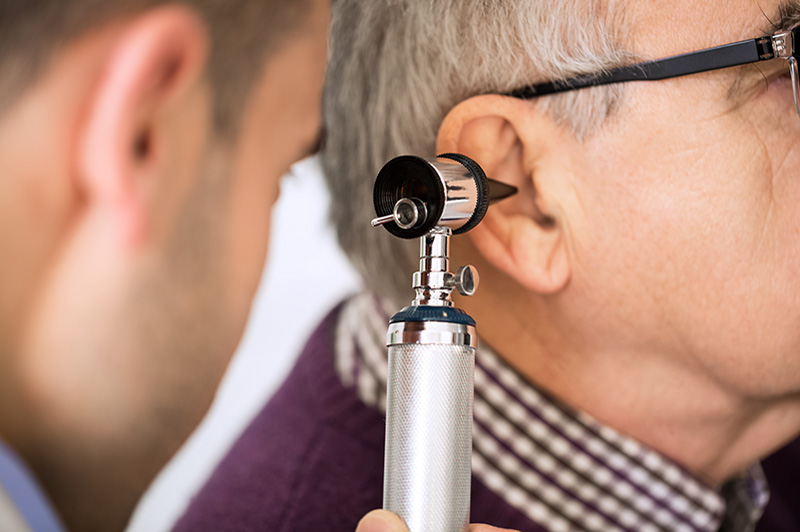Sudden Sensorineural Hearing Loss (SSHL) is a rapid and unexpected hearing loss in one or both ears. This type of hearing loss can occur suddenly, within 72 hours, and can be quite distressing for those who experience it. In this article, we will discuss SSHL, the role of an audiologist in diagnosing and treating this condition, and what you can do if you experience sudden hearing loss.
What is Sudden Sensorineural Hearing Loss?
SSHL is a type of hearing loss that affects the inner ear, specifically the cochlea, which is responsible for converting sound into electrical signals then transmitted to the brain. Various factors, including internal ear damage, viral infections, circulation problems, and exposure to loud noises, can cause sudden hearing loss.
Symptoms of SSHL include sudden loss of hearing, ringing in the ear (tinnitus), dizziness, and sometimes pain. In some cases, SSHL can also cause a feeling of fullness or pressure in the affected ear.
The Role of an Audiologist in SSHL Diagnosis and Treatment
If you experience sudden hearing loss, it is important to see an audiologist or an ear, nose, and throat (ENT) doctor at North Dallas ENT, as soon as possible. The audiologist will perform a comprehensive hearing evaluation to determine the extent of the hearing loss and rule out any underlying medical conditions contributing to the loss.
The audiologist will also perform a series of tests to determine the cause of the hearing loss, including an audiogram, which is a test that measures the ability to hear different frequencies and volumes. Other tests that may be performed include a tympanogram, which measures the movement of the eardrum, and an otoacoustic emissions (OAE) test, which measures the sound waves produced in the inner ear.
Based on the results of these tests, the audiologist will develop a treatment plan tailored to your specific needs. Treatment options for SSHL may include steroids, antiviral medication, and other drugs. In some cases, surgical intervention may be necessary.
It is important to note that the earlier treatment is started, the more effective it is likely to improve hearing and reduce the risk of permanent hearing loss.
What You Can Do if You Experience Sudden Hearing Loss
If you experience sudden hearing loss, it is important to seek medical attention as soon as possible. In addition to seeing an audiologist or ENT doctor, there are several things you can do to help improve your chances of recovery:
- Avoid loud noises: Loud noises can exacerbate hearing loss, so it is important to avoid noisy environments and use ear protection if necessary.
- Keep the affected ear clean: Keeping the affected ear clean can help prevent infections and other complications.
- Avoid medications that may cause hearing loss: Some medicines, such as certain antibiotics and diuretics, can cause hearing loss. If you are taking any medications, it is important to talk to your doctor about the potential side effects and whether there are alternative medications that may be more suitable for you.
- Follow your treatment plan: Following your treatment plan is crucial for improving your chances of recovery. This may include taking medications as prescribed, attending regular follow-up appointments, and making lifestyle changes as recommended by your audiologist or ENT doctor.
Conclusion
Sudden Sensorineural Hearing Loss can be a distressing and overwhelming experience, but with prompt and effective treatment, the chances of recovery are greatly improved. An audiologist plays a crucial role in diagnosing and treating SSHL, and working closely with your audiologist can help you achieve the best outcome.
It is important to remember that SSHL is treatable, and the earlier you seek treatment, the better your chances of recovery. By following your treatment plan, avoiding loud noises, keeping the affected ear clean, and avoiding medications that may cause hearing loss, you can take control of your hearing health and improve your chances of a successful outcome.
In conclusion, SSHL is a serious condition that requires prompt and effective treatment. An audiologist plays a critical role in the diagnosis and treatment of SSHL, and working closely with your audiologist can ensure that you receive the best possible care. If you experience sudden hearing loss, don’t wait – seek medical attention and start your journey to better hearing today.
